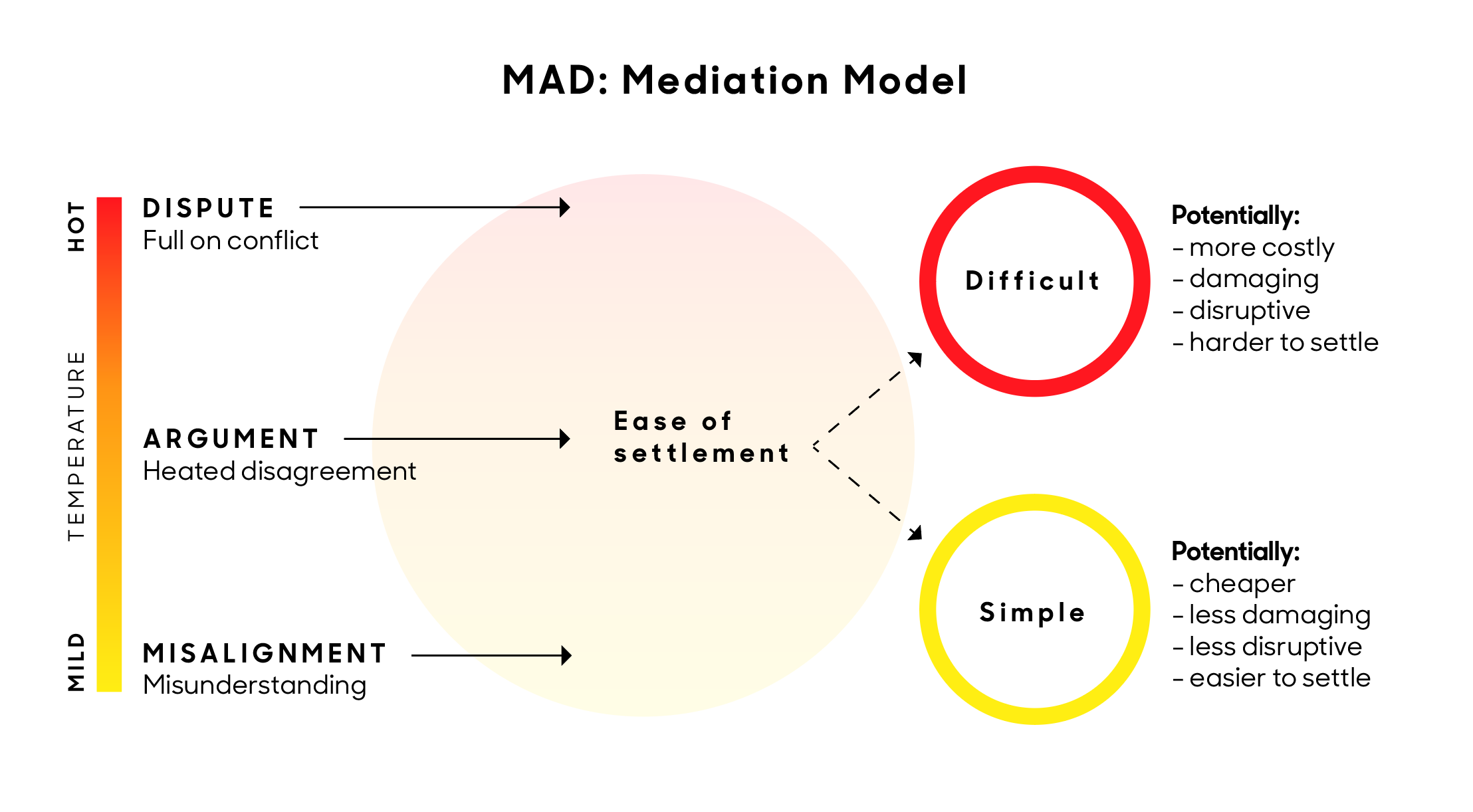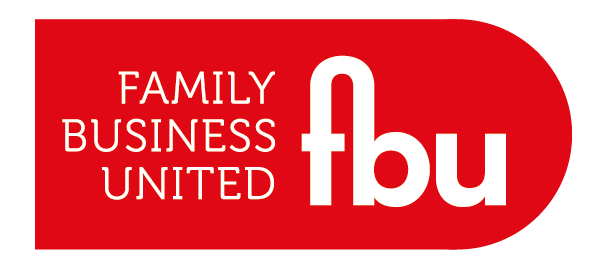Get in touch: nick.mayhew@alembicstrategy.com
The benefits of mediation for leadership
Mediating isn't just for divorce lawyers. For C-suite leaders such as chief executives, managing directors or business owners, mediation skills are an essential part of their toolkit. It's a soft skill that can be called upon time and again when steering a business through turbulent times.
Every leader knows that the ability to assist with negotiations without having to stamp your authority is one that can help see you through some pretty tricky exchanges.

Of course, not all organisations enjoy the luxury of organisational utopia. During the average working day, staff can become abrasive due to pressure or the work environment. When they do, it's not uncommon for the temperature to rise and feeling to become more animated. This is when workplace conflict can become more likely.
Mediation is an option for parties experiencing a conflict or dispute to introduce a neutral third party to referee the settlement, whereby a more agreeable outcome is achieved.
Areas of business where mediation can help include:
-
Addressing commercial disputes
-
Avoiding litigation and legal proceedings
-
Negotiating through a refusal to cooperate
-
Agreement on internal policy or procedure
The skilled mediator knows how to navigate potentially flammable exchanges between colleagues, clients or associates in pursuit of the most effective outcome. They understand that the mediation process is an assist to those working towards a solution. The mediator is there to own the process only, but the final decision is owned by those they are assisting. Mediators control the process, whilst the parties they work with control the outcome.
The benefit of working in this way is that a final outcome might not only be reached more quickly, but it's quite likely that it could be more effective too. This is a direct result of the mediation process. A good arbitration technique can have a grounding effect on the way the mediated parties interact with one another and encourages a mutual and more agreeable outcome.
The key skills of a mediator:
-
Investigative: exploring the context around the issue
-
Listening: ensuring those involved have an opportunity to be heard
-
Neutrality: an impartial view of the position of each party
-
Versatility: ability to repurpose an argument to an agreeable angle
-
Understanding: an empathetic approach to evaluating the issue
-
Steadfast: capable of remaining stable within a heated exchange
-
Shared focus: amplifying agreement when there is alignment
When attempting to resolve a conflict, it's important that the mediator approaches the often delicate situation with an understanding of the people involved, their issues and the surrounding context.
The need for mediation
Mediation is often required when two parties experience conflicting views on a situation, especially so if you're introduced into a new team. The need typically arises out of conflict, which itself is often borne out of business change. Change has the ability to make people feel unsure about the way things are, or even insecure. Once people feel insecure, they can become fearful, and are likely to instinctively choose to protect their interests. This scenario lends itself to a mediator due to the fact that the two parties - one bringing about change, the other being protective of themselves in the change - will require a level of arbitration to help them reach an agreeable route forwards.
Disputes in the workplace can have a detrimental effect on morale and productivity. Issues can quickly escalate from what might begin as a minor disagreement into a far more inflammatory dispute. The mediation model shown below illustrates a simple outline of the levels of conflict through to the negative effects they can render.
MAD Mediation model (source: Alembic Strategy, 2020)
Of course, it's not necessarily true to suggest that it is any less possible to resolve a dispute than it is a minor argument. It's just that it will take more effort to do so, and may result in considerable costs to the organisation.
This is also true when disputes extend beyond the office to clients or contacts. Negative aspects of disagreement include:
-
Compromised trust between parties
-
Reduced morale amongst staff
-
Tendency to make assumptions
-
Distracted workforce
-
Potential for toxic conversation
-
Lower productivity
-
Possibly leading to brand damage
Once the potential for damage of the sort outlined above becomes clear, the need to resolve issues and disputes is obvious.
Leaders who mediate build trust and stronger teams
Leaders who can step into the role of a mediator, and do so effectively, seize an opportunity to strengthen their position. If you are a leader who adopts the key skills of a mediator to oversee the resolution of team conflict, not only will you eradicate the problem that the team faces, but you exude the attributes of a fair and credible line manager.
The benefit of your mediation expertise in solving interpersonal or organisational issues is not only limited to the removal of a barrier to progress. By reaching a desirable outcome amongst your own team, you establish the foundations of trust amongst the mediated parties. Your involvement in the settlement of anything from a simple project misunderstanding to a more significant dispute ensures those benefitting will naturally develop an affinity towards your fair management of their concerns.
A leader who can mediate well is likely to establish a reputation for fairness amongst their team.
The mediation process
The process of mediation will typically commence with informal discussions around the area of conflict. The mediator will speak with both parties, either separately or jointly as a group. This will allow the mediator to gain a deeper understanding of the root cause of the conflict being experienced by those involved.
From this point, the mediator will encourage both sides to explore options for reconciliation. The advantage here being that through the introduction of a mediator, and with both parties proactively involved in the negotiation process, the likelihood of agreement is encouraged.
The downside is that if an agreement is not achieved, the final settlement of the dispute may end up in court. Avoiding this route will naturally be the objective for all parties as it will undoubtedly be the more painful route. Should the legal channel become the only viable option, parties will incur additional costs as negotiations become a more extended and protracted process, and result in greater pain for the losing party. The skilled mediator will attempt to avoid this where possible.
Summary
Mediation is a viable option when two parties become embroiled in a conflict or dispute. This might occur between colleagues, clients or across associate networks where collaboration is required. Leaders with the ability to mediate between parties are armed with an essential skill that compliments their leadership expertise. Leaders can then be called in to mediate between parties to mitigate the potentially costly or damaging effects of the dispute, and limit the argument before it escalates in to something more problematic.
Get in touch: nick.mayhew@alembicstrategy.com




